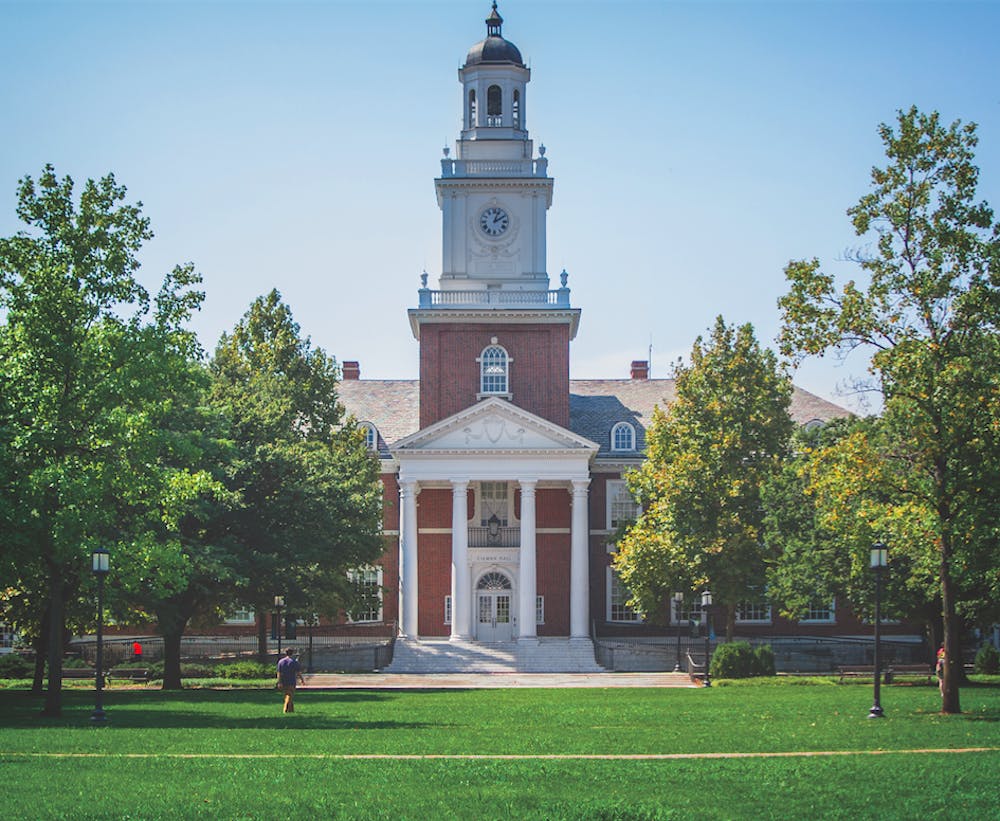Hopkins is no longer a top 10 university, according to the 2018 U.S. News & World Report college rankings, which were released on Tuesday.
The University is now tied for 11th place with Dartmouth College and Northwestern University in the National University Rankings after holding 10th place for the last two years.
Sophomore Paula Granston does not believe there are many differences between top-ranked universities.
“I feel like once you get into the top 20, it’s basically all the same,” Granston said. “As you go up in the ranks, I think elitism increases... But in terms of academics, I think it is all the same.”
While Hopkins dropped in the U.S. News rankings, it climbed from 17th to 13th in the world in this year’s Times Higher Education rankings. For Times’ national rankings, Hopkins rose from 12th to ninth.
The Times ranks the top 1,000 institutions all over the world. To determine their rankings, the organization looks at 13 performance indicators from five areas: teaching, research, citations, international outlook and industry income.
U.S. News uses a different set of criteria to evaluate institutions. It takes into account undergraduate academic reputation, graduation and retention rates,
faculty resources, student selectivity, financial resources, graduation rate performance and the alumni giving rate. U.S. News amended its methodology for determining graduation rates this year to update the accuracy of its rankings.
Many have criticized the lack of an economic diversity category. Since rankings consider the number of alumni who donate to their alma maters, some say that universities recruit wealthy students who are more likely to donate to the school.
Sophomore Vanessa Chan feels such efforts are understandable from a business perspective.
“From a practical standpoint, I think it makes sense that colleges want students from wealthier families, so that they can get money and use that money to host events for students,” she said.
Chan also believes that students of lower income could contribute to universities without giving large monetary donations.
“Institutions should also take into consideration that students that don’t have as much money might contribute in a different way, by developing a company or through research,” she said.
According to sophomore Charisma Burrows, the Office of Annual Giving hires students to work at the JHU Phonathon to call prospective alumni donors for monetary donations.
“One of our main selling points when we’re talking to alumni and future donors of the University is we like to mention how the percentage of alumni that give back in any amount to the University is calculated by U.S. News & World Report,” she said. “Every time you give, no matter how much, it helps us move up the rankings as well as keep our reputation as a top class university.”
Students have diverse views on university rankings. Some believe that they are important and lend prestige to a college, while others think that rankings lead universities to prioritize certain programs over others.
Sophomore Aryiana Moore referenced the University’s Biomedical Engineering program, which lost first place to Georgia Institute of Technology.
“Even though Johns Hopkins obviously has increased the rigor of the BME program according to people in it, they are not taking extreme lengths to cut out clubs to only focus all money and resources into BME,” she said.
Hopkins also moved up four spots this year, from 17th to 13th in the world, in the Times Higher Education. Chan said the jump was thanks to Daniels.
“It has to do with President Ron Daniels and the faculty at Hopkins creating more initiatives to involve the community,” she said.





